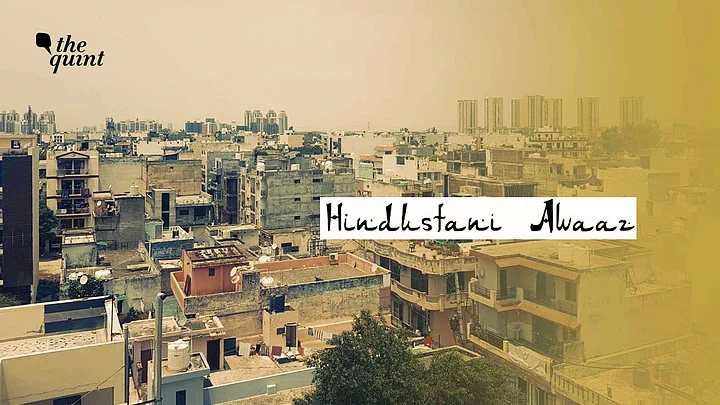In my childhood, summers meant mangoes cooled in tubs of water, an abundance of fruits such melons, jamun, phalsa, khinni, litchi, loquat, as well as drinking cool water from clay surahis and matkas that smelled of damp earth, afternoons in khus-scented rooms to escape from the sweltering loo winds and nights under starry skies redolent with the scent of mogra, bela, chameli, raat ki raani. A rickety ceiling fan or an even ricketier pedestal or table fan was usually enough. Coolers made an entrance as I stepped into my youth, though ACs were still a far cry.
The daytime heat was always intense, of course, but nights brought relief with the gentle purvai breeze that carried with it the hint of mehndi leaves and myriad other scents.
Both the scorching summer days and the soothing nights find ample reflection in Urdu poetry. What follows is a sampler, though it also begs the question: what are we leaving for our future generations as we spend our days in the comfort of AC rooms and our nights huddled under AC quilts?
The Purvai Blowing From 'Her' Alley
The summer afternoons that seemed endlessly long when one had to perforce stay indoors to escape the sun’s wrath are captured in this sher by Aitbar Sajid:
Phir wahi lambi dopahrein surmai hain phir wahi dil ki halat hai
Baahar kitna sannata hai andar kitni vahshat hai
(Again those long afternoons, again my grey heart
Such silence outside, such turbulence inside)
And the wrath of the mid-day sun is likened to the terror of doomsday here by Nasir Kazmi:
Suraj sar pe aa pahuncha
Garmi hai ya roz-e-jaza
(The sun has come directly overhead
The heat makes it seem like doomsday)
The same Nasir Kazmi, in another sher, evokes the wonder of a summer night when a cool breeze blows and the harshness of the sun is momentarily forgotten:
Saara din tapte suraj ki garmi mein jalte rahe
Thandi thandi hawa phir chali so raho so raho
(We burned in the scorching sun all day long
When the cooling breeze blew we slept, we slept)
Khaleel Rampuri plays upon the idea of the purvai, the wind that comes from the east and brings coolness, though here it comes from the beloved’s alley and brings blessed relief:
Garmi bahut hai aaj khula rakh makan ko
Uss ki gali se raat ko purvai aaegi
(Keep the house open in this heat
The purvai will blow from her alley tonight)
The Romance of Terraces & Rooftops
Hasrat Mohani evokes the romance of terraces and rooftops, transformed into magical spaces at night but deserted and scorching hot in the blistering summer sun, in this gently romantic ghazal immortalized by Ghulam Ali:
Dopahar ki dhuup mein mere bulane ke liye
Woh tira kothe pe nange paanv aana yaad hai
(Coming to call me in the heat of the noon sun
I remember you coming barefoot to the rooftop)
Rahat Indori, too, invokes the blistering power of the summer sun that scorches and blackens every vestige of spring:
Shahr kya dekhen ki har manzar mein jaale parh gaye
Aisi garmi hai ki piile phuul kaale parh gaye
(How can I see the city when everything is ruined
The heat is such that flowers have turned black)
Meer Anees, the marsiya-go extraordinaire, too, evokes the terrible scorching power of the sun:
Garmi se muztarib tha zamana zamin par
Bhun jaata tha jo girta tha daana zamin par
(The world was afflicted by heat on this earth
As even a grain that fell to the ground was roasted)
With his tongue firmly in his cheek, the irrepressible Nazeer Akbarabadi talks of the summer heat and that of the bodies that makes the summer ‘doubly hot’:
Aate hii jo tum mere gale lag gaye wallah
Uss waqt to iss garmi ne sab maat ki garmi
(You came and hugged me as soon as you came
And defeated the summer heat with your heat)
The Shade of Her Tresses
Insha Allah Khan Insha plays upon a similar sentiment thus:
Garmi ne kuchh aag aur bhi siine men lagayi
Har taur ġharaz aap se milna hi kum achchha
(The heat stoked yet another fire in my breast
It’s better in every way to meet you less often)
When others speak of the sun, Bashir Badr speaks of the shade, and that too the shade offered by the heavy, coiled tresses of the beloved:
Phir yaad bahut aayegi zulfon ki ghani shaam
Jab dhuup mein saaya koi sar par na milega
(I will remember the dark evening of your tresses
When I find no shade from the sun over my head)
And because in Urdu poetry for every idea there is a contrarian one, too, here is Ahmad Mushtaq turning the same notion of sun and shade on its head thus:
Main bahut ḳhush tha karhi dhuup ke sannate mein
Kyuun tiri yaad ka badal mire sar par aaya
(I was happy in the silence of the scorching sun
Why did the cloud of your memory come overhead)
(Dr Rakhshanda Jalil is a writer, translator and literary historian. She writes on literature, culture and society. She runs Hindustani Awaaz, an organisation devoted to the popularisation of Urdu literature. She tweets at @RakhshandaJalil. This is an opinion piece and the views expressed above are the author’s own. The Quint neither endorses nor is responsible for the same.)
